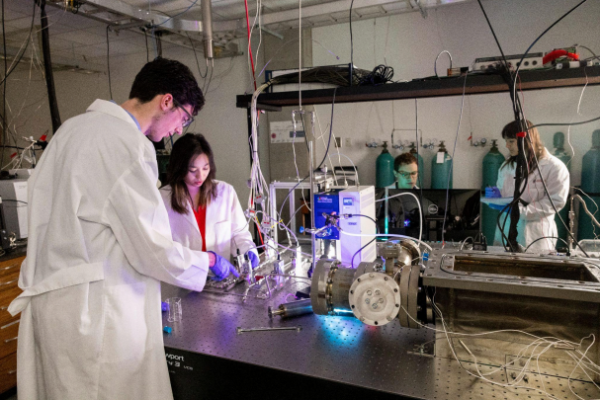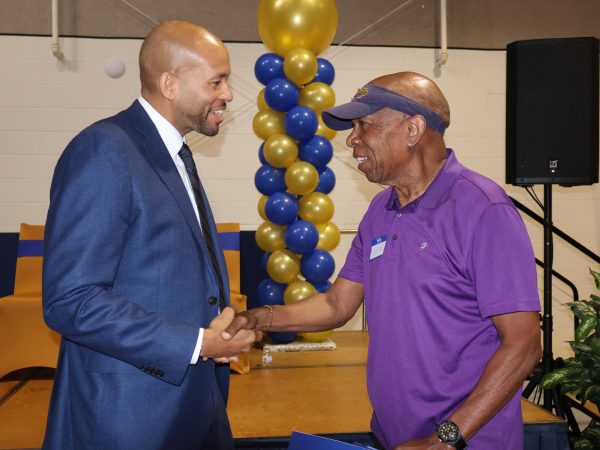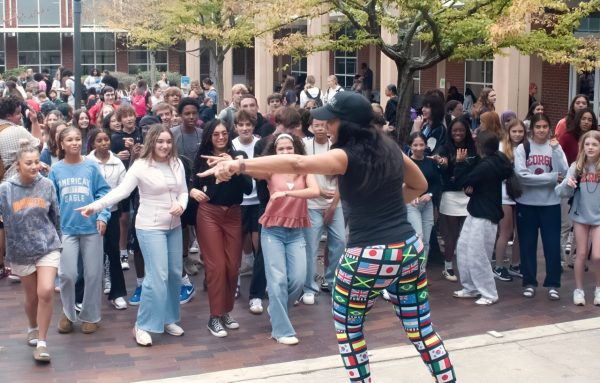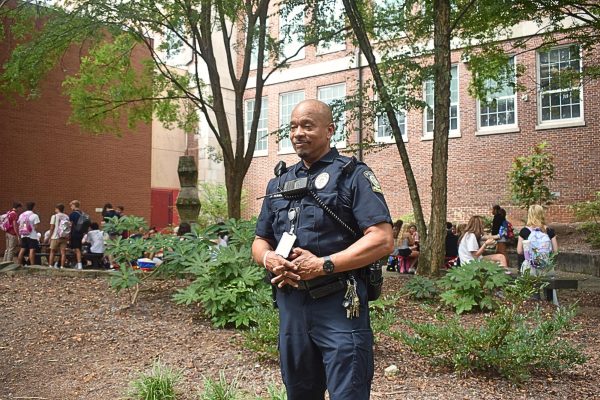Teachers integrate name change into classroom discussion
In his AP Comparative Government and American Government [Civics] classes, Rhodenbaugh surveyed his students on their opinion of the school name.
In light of the Grady renaming committee’s August decision to extend the school’s renaming process into late October to encourage more student input, teachers have integrated the name change discussion into their classrooms.
The committee has recommended the school be named something other than Henry Grady High School as the school’s namesake expressed white supremacist views in the late 1800s. The school first bore his name when the main building was constructed in 1922. It officially became Henry Grady High School in 1947 as it converted from an all boys school to a coed institution.
AP English Language and Composition teacher Kate Carter brought the discussion to her classes because the topic was a “perfect marriage” for argumentative writing and the debate around the name change.
“We talked about the counter-arguments; we talked about the historical context of figures and how to evaluate what that context is, and if it does or doesn’t matter,” Carter said. “I purposefully kept the topic extremely broad, and students had to make it much more specific to come up with an interesting angle for their thesis.”
Carter first discussed the name change with her students during the 2019-2020 school year. Since then, many of her past students have reached out to her, offering a different stance or opinion.
“They felt like, with the pandemic and the violence against people of color and the police brutality over the summer really brought home the fact that this very school, in this very progressive forward-thinking area, the cradle of the civil rights movement, is named after a racist just doesn’t make sense,” Carter said.
Junior Jack Kast, one of Carter’s current students, participated in the essay assignment and appreciated how Carter brought the topic into her classroom.
“From what I’ve seen by watching the Facebook Lives (name change committee meetings) about changing the name, the discussion has been so distant from the actual students that go to this school,” Kast said. “So, I was glad to see people actually tie the name change to the students, and hopefully have our opinion be the driving force behind the change.”
AP Comparative Government teacher Christopher Rhodenbaugh has also incorporated the name change into his lesson plan and allowed students to guide the conversation.
“I wanted to be really careful about expressing my own opinion, and really mindful of it, because it’s not my place,” Rhodenbaugh said. “I have a voice in the conversation but my voice is not to persuade my students of an opinion.”
After the class discussions, Rhodenbaugh instructed students to write a paragraph stating their opinion on the school name, and requested that students also submit their work to the district.
“I know there are some people who have an opinion on what the name should be changed to but don’t really have a platform to talk about it,” said senior Zoya Charania, one of Rhodenbaugh’s students. “Rhodenbaugh gave people a platform to express their opinion and learn about the reasoning behind some of the names that they are considering.”
Rhodenbaugh will discuss the paragraph submissions with Jay Hammond, a 2020 Grady graduate and member of the renaming committee, to ensure that the school board and renaming committee are attuned to Grady students’ voices.
The process of changing Grady’s name has unearthed many opinions about whether the name should be changed at all, and if it is , who or what it should be named after. In this time of debate among the community, Carter and Rhodenbaugh want to highlight the significance of student input.
“I want them to feel like their voice matters, and they can make change, and that they are part of the change,” Carter said.
Rhodenbaugh shared a similar sentiment, expressing the importance of students recognizing their ability to make a difference at the local level.
“Students need to understand that they have the capacity to influence things they might assume are set in stone,” Rhodenbaugh said. “If a group of people really want to make a change, it’s very possible at the local level, at a time when solving problems at the national level seems increasingly frustrating and challenging. We can do a lot as a city.”
As teachers encourage students to participate in the school name discussion, Charania feels it is necessary for teachers to keep students engaged.
“Teachers should stay up to date on the meetings that they’re having regarding the name change and just keep students updated and educated about what’s going on, and give them a platform to talk about their opinion,” Charania said.


![In his AP Comparative Government and American Government [Civics] classes, Rhodenbaugh surveyed his students on their opinion of the school name.](https://thesoutherneronline.com/wp-content/uploads/2020/09/AOBMTT56ylAQDAyv5OcJ66jtJardVgcasZEF6MLL-900x368.png)




